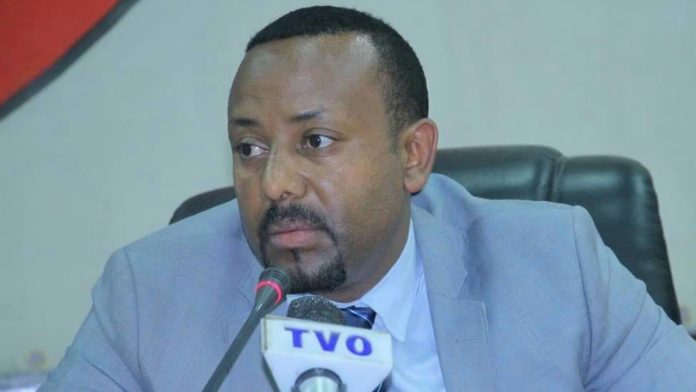The light at the end of the Ethiopian tunnel shows that the youths are coming to power. Last week, Ethiopia’s ruling coalition named its Chairman as the country’s new Prime Minister amid the latest state of emergency in Africa’s second most populous nation.
Abiy Ahmed was sworn into office on Monday, (that is yesterday) to succeed Hailemariam Desalegn who resigned in mid-February as a result of sustained anti-government protests that claimed the lives of several hundred people, mainly in the restive Oromia and Amhara regions.
Mr. Ahmed is the first Oromo politician to become Ethiopia’s prime minister and it is hoped he will be able to quell the protests raging since late 2015 over wider political freedoms. The Oromo people, the largest ethnic group of Ethiopia’s 100 million people, complain of being politically and economically marginalized.
Forty-year old Abiy has been in the wings since Ethiopian Peoples’ Revolutionary Democratic Front came to power in 1991. The outgone prime minister had been tagged as weak while operating under the shadow of former strongman, Meles Zenawi, who died in 2012. But Desalegn easily copied the late leader’s core policies by sustaining economic transformation and political repression.


















